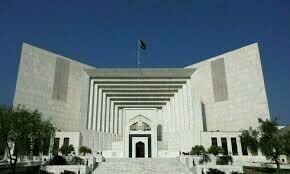LAHORE, June 7: The Human Rights Commission of Pakistan (HRCP) on Saturday declared that the Pakistan People’s Party’s proposed constitutional amendment “will lead to a worse judicial crisis”.
The statement, signed by HRCP chairperson Asma Jahangir, acknowledged the proposed package’s “positive developments”, citing as example the repeal of Article 58(2)B, restoration of the prime minister’s executive authority, the renaming of the NWFP, and the amendments regarding the selection and appointment of judges to superior courts and discouraging sitting judges from accepting senior positions in the bureaucracy.
However, the HRCP’s remarks on other aspects of the package, particularly those related to the higher courts, are scathing.
Calling the present draft “totally unconvincing, both in its intent and substance”, Ms Jahangir stated: “The package does not fulfill a number of requirements and is tailored to suit the interests of the current set-up, rather than to deepen democratic governance.”
Asma Jahangir said that the PPP did not have the support of two-thirds majority in both houses for adoption of its amendments, in any case.
Regarding the suo motu powers of the courts, Ms Jahangir bemoaned that under the package, the powers of the Federal Shariat Court to take up any law and strike it down remained, while the Supreme Court could only pass a declatory order without the power to enforce its rulings and provide relief to victims.
She said that the HRCP rejected the wording of “reappointment” of the pre-Nov 3 judges as recommended under Article 270 CC of the package.
She said: “It could be misconstrued, especially as the two consecutive terms of the chief justice appear to have been deliberately kept vague …As such, the package leave an impression that the formula of minus-one and plus-one has been adopted.”
Claiming that the intention of the package “appears to undermine the independence of the superior courts”, Ms Jahangir criticised the composition and powers of the judicial commission, labeling them “arbitrary”. Ms Jahangir denounced as absurd the requirement of the commission members to be “non-politicised”.
She said that the HRCP opposed the condition that the prime minister must be a Muslim, as added by the amendment to Article 91. She said: “It is disappointing that a party which prides itself on its democratic credentials should discriminate on the bases of religion,” adding that the package also left Articles 62 and 63, requiring members of the parliament to be “pious”, untouched, and supplemented it with the additional “vague and subjective” criteria of “goodness”.
She criticised the restriction on the election of a person for more than two terms to the post of prime minister, while noting that minority seats in the Senate had also been omitted.














































Dear visitor, the comments section is undergoing an overhaul and will return soon.